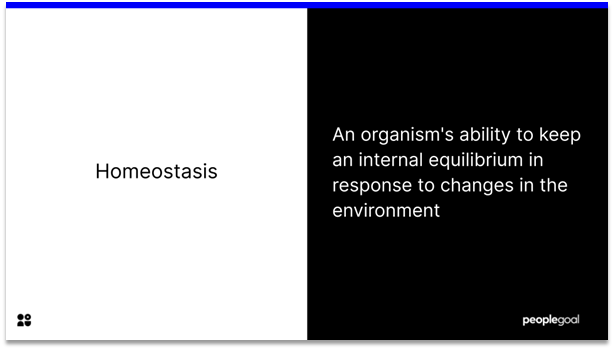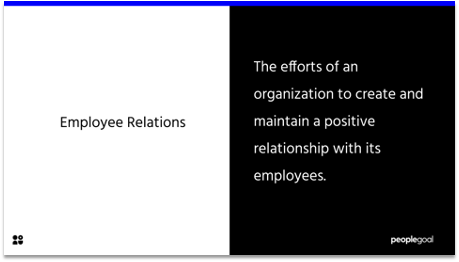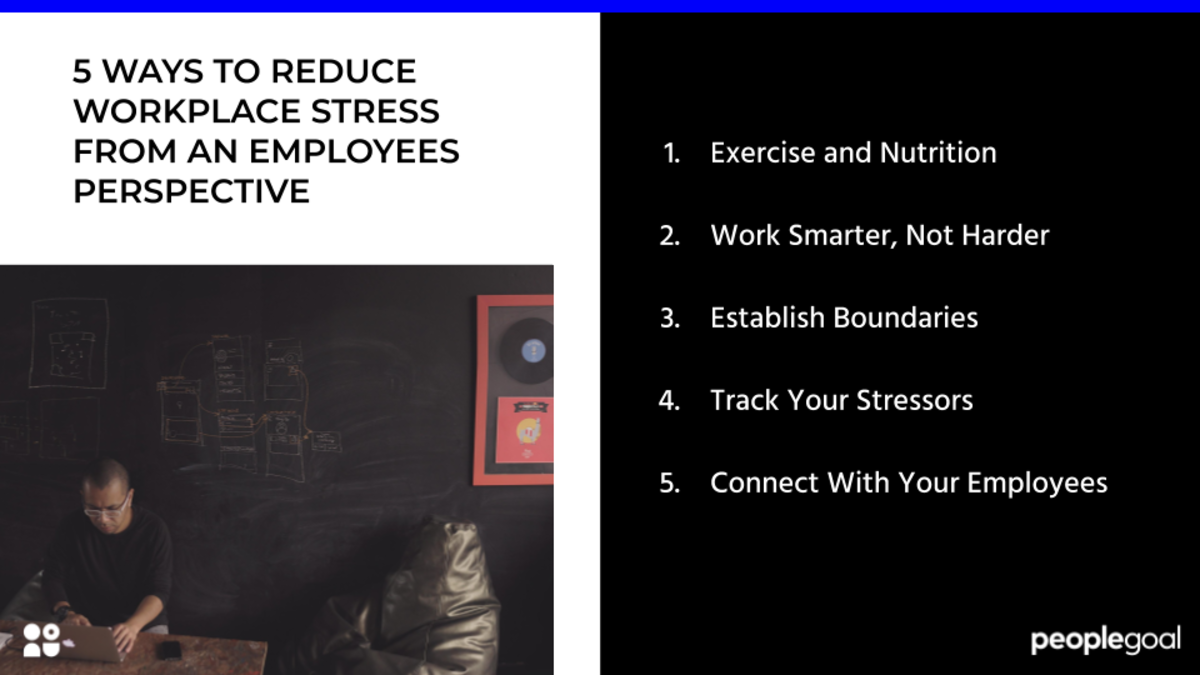With end-of-year performance reviews upon us, this is the time to start consolidating what feedback you want to give to your team members. Performance appraisals present an opportunity to highlight the strengths and weaknesses of managers and employees alike. Consequently, performance evaluation comments provide the formative elements for great employee-manager relationships.
Giving constructive feedback has significant value for retaining higher levels of employee engagement and on top of this, it can inspire better performance in the new year. The purpose of an annual review cycle is to create a consistent process to deliver feedback to employees. From this feedback, employees can then learn and develop through an appreciation of the previous 12 months of work. In addition, they can be a great platform to set goals whilst also tracking goal achievement.
Manager performance review comments are a great way for managers to give real examples that relate to employee’s abilities and areas of development. Consequently, we have drawn up some examples of performance review phrases for 5 critical employee interpersonal skills.
Our 5 critical employee skills are:
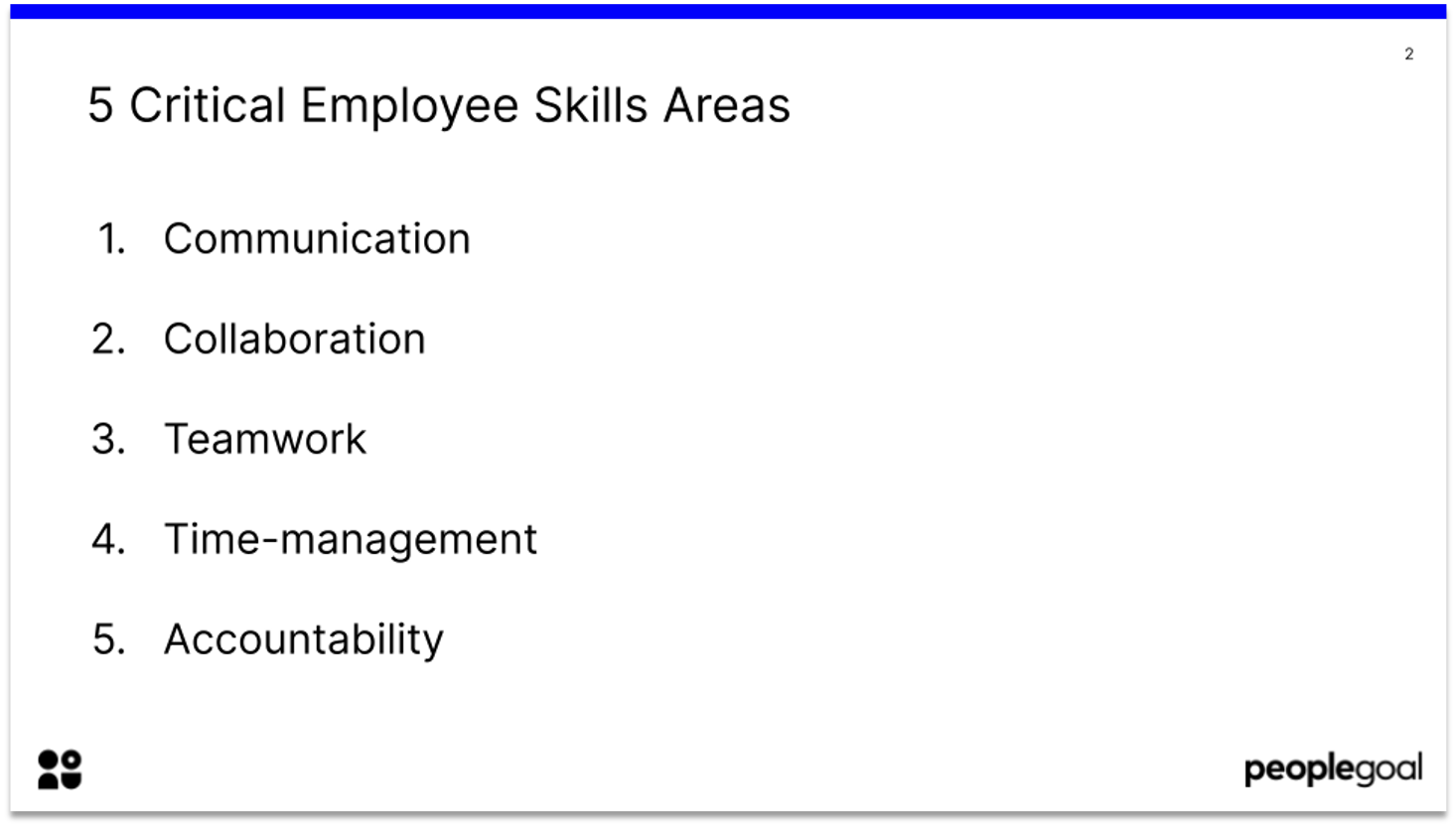
Manager Comments for the Next Review Cycle
1. Communication
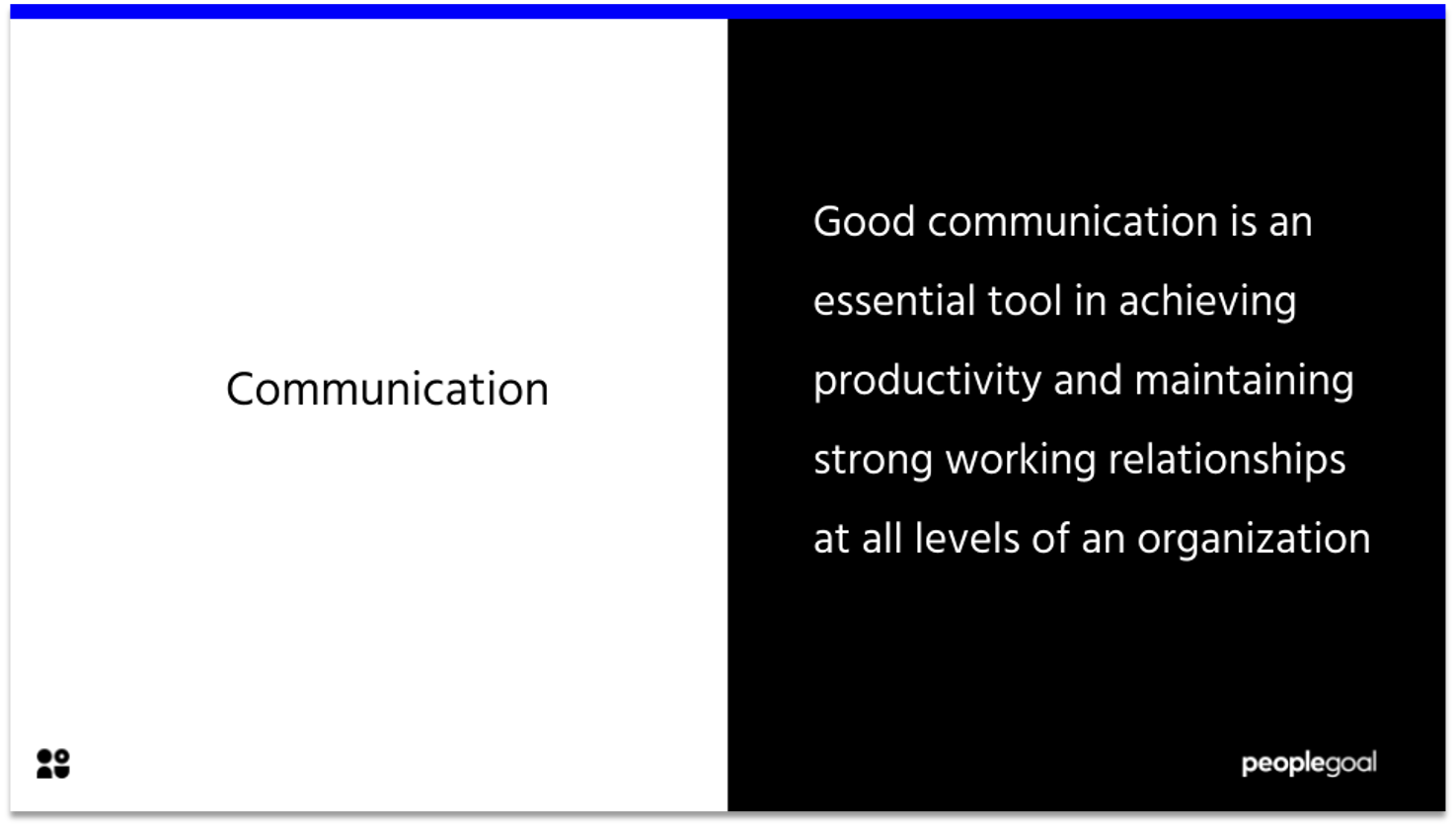
Meets expectations:
"Effectively communicates with colleagues, supervisors, partners and customers"
An employee that is capable of communicating well with people from any level of your organization as well as whilst facing customers should be praised for this unique skill. Demonstrating an appreciation for this ability will contribute to a more confident employee that will continue to perform well in any situation in their work.
"Clearly communicates ideas and thoughts in team meetings and conferences"
Recognition of an individual that can present and elaborate on whatever it is they want to share is another great skill. Signaling that you recognize and celebrate this ability in someone will inform them that they have a great ability to convey clear reasoning for their opinions.
"Has clear, direct and concise writing"
Beyond an ability to dictate one’s thoughts, if an employee’s role requires good writing skills, this comment will shine positively on this attribute. Communication goes beyond good speaking, writing is also a fundamental aspect of good correspondence.
Needs improvement:
"Needs to improve oral/ written communication skills"
In your performance appraisal, it is important to highlight skill gaps or areas that you would like to see improvements from an employee. Communication whether spoken or in writing is a core skill and so if an employee is communicating well, they need to know. Informing a team member of this is the best way to ensure they learn and develop the skill after their employee review.

"Needs to listen more and ask questions to ensure they understand discussions in meetings"
If an employee appears to refrain from asking questions even when an issue needs to be clarified, this can’t continue. Make your employee aware that you expect to see them engage more in meetings by drawing attention to the cause of the problem. This constructive feedback should contribute to better performance in the new year.
"Must address their informal style of communication with colleagues"
The workplace is a space for professionalism. Therefore, it is inappropriate for team members to address others in a demeaning or improper manner. Illustrating your desire for an employee to communicate in a more appropriate way is important to bring up in annual reviews.
Of course, conversations during an individual’s break time are free for them to converse in any way they desire. Although the line must be drawn when an individual is communicating with colleagues. As such, this is where the performance evaluation comments come into play.
2. Collaboration

Meets expectations:
"Effectively collaborates with people in (and outside of) the team to successfully reach targets"
Effective collaboration is proven to have positive effects on business performance and developing innovative ideas. By showing an appreciation for this skill, the performance review will demonstrate that a team member’s efforts to work alongside others are well-received.
"Easy to work with, ‘x’s’ enthusiasm can inspire others"
Annual reviews are instigated to ideally celebrate an individual. Appraisal comments like this will encourage better employee engagement and therefore ameliorating the experience of work for managers and employees alike.
"Proven high level of professionalism and very responsive to any query asked"
If you have experienced or been informed of someone’s outstanding performance, this must be reflected in their employee review. Whilst real-time recognition has value, a written report that records and merits good performance will mean more to an employee and will boost employee engagement.
Needs improvement:
"Must look to better engage with other colleagues"
Finding a means to create a positive spin on clearly negative behavior is difficult. Through the use of constructive feedback, you are more able to achieve this in a performance review. If someone is clearly not collaborating, it is important to address this.
Alongside this comment, we suggest that you put forward a personalized suggestion for improvement that directly relates to the employee’s performance.

"Lack of organization prevents ‘x’ from being able to collaborate well in meetings"
Giving negative feedback can often lead to disengaged employees, however, the purpose of annual reviews is to pick out aspects of an employee’s performance and to inform them on how to improve. By indicating where an employee isn’t meeting expectations, you can prompt better employee engagement as they learn where they need to develop and improve.
"Needs to become more actively involved in discussion"
Sometimes a manager must make comments that are directed at a particular trait that has not been witnessed in the performance of a team member. Every employee has strengths and weaknesses, these should all be addressed in an employee review.
The purpose of a review cycle is to create a consistent channel of constructive feedback that better informs employees about their performance as a whole.
3. Teamwork

Meets expectations:
"Creates good relationships with managers and employees in a professional environment"
Any time managers display recognition of good work, this is recorded in a performance review. This will inform the employee that what they are doing is good work. Making good relationships in the workplace is crucial to the success of any business or team.
When conducting performance reviews, you want to set goals and organizational values that are long-term. This is how you can enable better employee engagement and enact a good pattern of overcoming strengths and weaknesses.
"Works well with others"
Again, the skill to fit into a team and work productively with others should be celebrated. In an employee review, managers should set out to merit this ability. It might not seem to be linked directly to the progress of a team but teamwork is fundamental for any team to succeed and also leads to improved employee engagement.
"Respects every team member"
A considerate and respectful employee is invaluable. The employee should be commended in their performance appraisal for the way they conduct themselves in their interactions with others.
Needs improvement:
"Needs to show more appreciation and respect for other team members"
When a team member is disrespectful to their colleagues this can cause unwanted tension and can often be unproductive. If there appears to be a problem among your team members, this must be addressed.
Through constructive feedback, the employee in the wrong can learn and work on their behavior to better align with your company values.
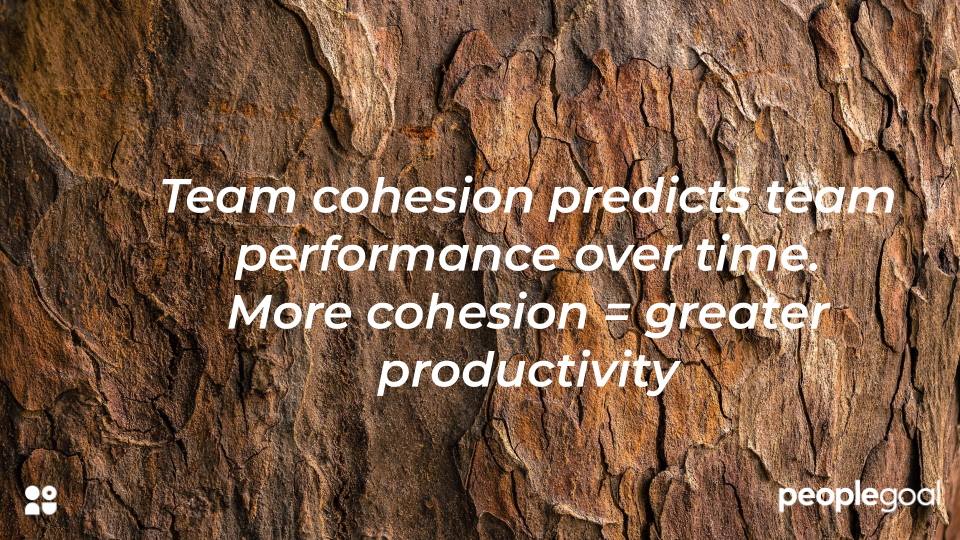
"Must focus less on individual tasks and stop neglecting more cohesive task management"
Encouraging a more cohesive workforce is imperative for better employee engagement and productivity. Using an employee review to highlight the issues within a team member’s performance can assist in coaching more desirable behavior.
"Should look to consider the needs of other team members"
Teams that are committed to looking out for, and helping, each other are more likely to succeed. Promoting these values for your employees will guide employees to align with these desired approaches to work.
Using this comment in an employee performance review, you are able to clarify precisely where an employee is not meeting your expectations.
4. Time-management

Meets expectations:
"Displays good planning and organizational skills"
Time-management is an incredibly valuable skill. Employees that can plan ahead will inevitably be better organized and so will be better prepared to accomplish their objectives. Recognizing this in a performance appraisal will act to reinforce this behavior and so you can expect to see the employee continue or improve their planning abilities following the review.
"Consistently ensures all work is completed on time"
An employee that can consistently meet deadlines is extremely valuable and sets a great example to other employees. Furthermore, it gives a better representation of your organization. Good time-management is an important trait to look for and praise among employees.
Any employee that merits this comment will be more engaged and may even inspire other team members to follow their example.
"Regularly updates their own and team objectives"
When an employee has such good organizational skills they will also be able to keep others in line. Through the performance review process, this employee will be reminded of the value of their capabilities. An employee that is able to properly organize themselves as well as other team members is quite frankly a manager’s dream.
Needs improvement:
"Rarely completes assigned work on time and devotes a lot of time to non-priorities"
Some employees may not be so adept at completing tasks set for them in the desired timeframe. Whilst they may not register real-time feedback, the comments in an annual review can not be ignored.
Giving an employee constructive feedback that better guides how they should prioritize tasks is fundamental to ensure they perform better before the next review cycle.

"Treats deadlines like an option and constantly sets aside vital projects"
The use of an employee performance review is intended to discipline and instruct employees that are not performing well. Should an employee display a significant inability to comply with the deadlines they are set, this really is an issue that must be addressed.
Alongside this comment, you should provide clear instructions as to how you expect the employee to conduct their work following the performance review process.
"Rarely seeks assistance to solve a problem quickly and ends up struggling to catch-up with others"
In some circumstances, it may be that an employee is too reluctant to communicate with their colleagues when faced with a problem. For these employees, there is a need to nurture as opposed to discipline. Use this comment to highlight the issue and offer counsel as to how they can become more prepared to engage with team members.
5. Accountability
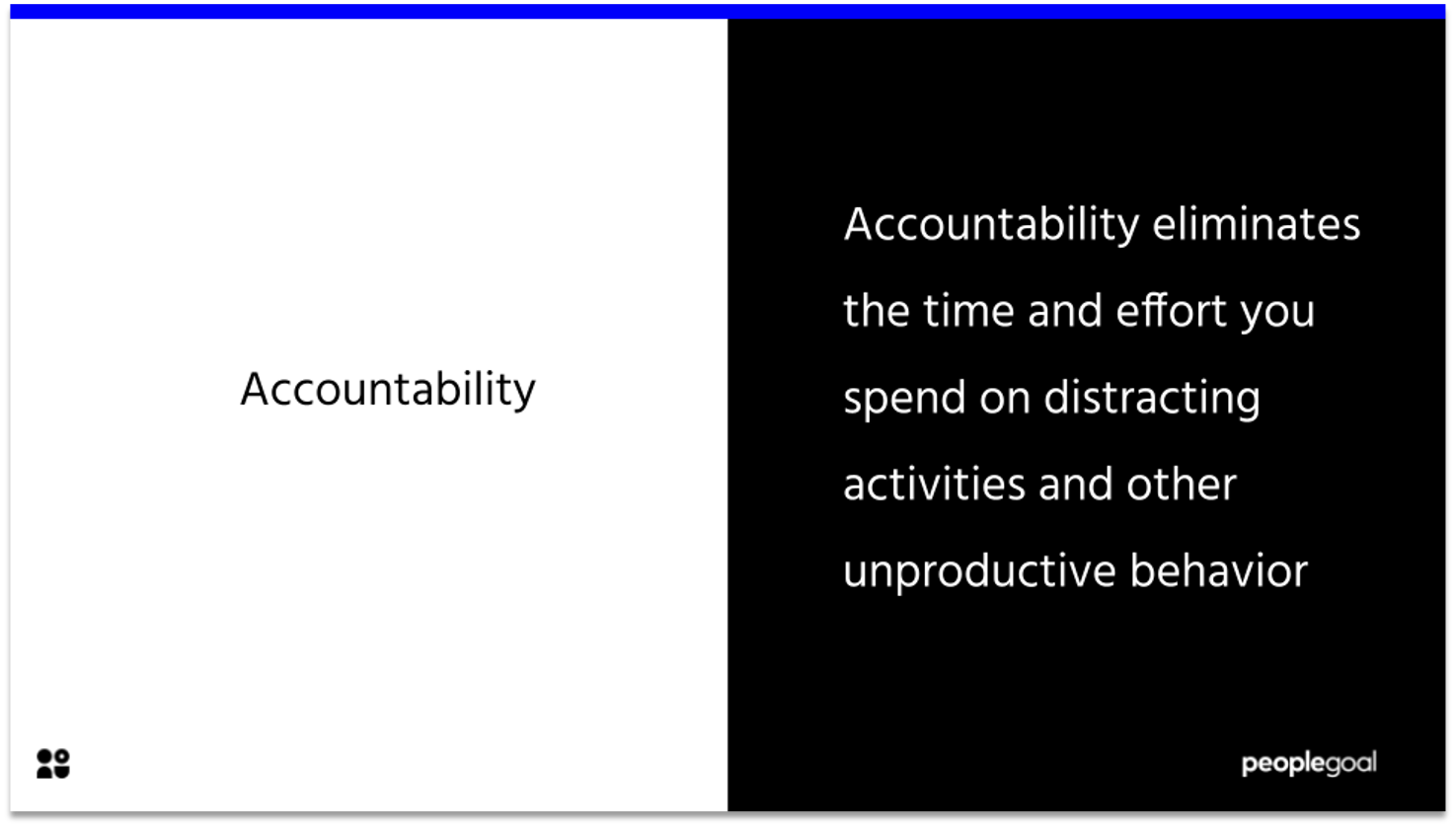
Meets expectations:
"Demonstrates a professional approach to work and can be relied on in times of need"
Ideally, you should be able to count on your employees to accomplish their objectives and complete any tasks given to them. Even if this may not seem like a particularly astonishing achievement when employees are able to crack on and fulfill the role expected of them, this simply will detract from the headache of work.
Demonstrate recognition of this reliability in their annual review to ensure they maintain this standard of work.
"Submits all paperwork assigned according to the requirements without any failures"
Through your employee performance reviews, you are able to encourage and promote the efforts of employees that are meeting expectations. An accountable employee is extremely valuable and demonstrates a good level of employee engagement.
When managers and employees can rely on each other, there is far less friction in the workplace and team members are able to collaborate with ease.
"Highly responsible and consistently gives absolute commitment"
In the performance appraisal of a highly responsible employee, you should look to praise their efforts. Particularly for junior employees that aren’t expected to assume so much responsibility, this trait must be celebrated and will contribute to your organization developing into something even greater.

Needs improvement:
"Has a tendency to blame others for problems or poor results"
Over the course of a review cycle, it may be that an employee has regularly performed poorly and blamed others. This suggests that real-time constructive feedback has not been well received and so in the employee performance review, it is important to flag this up.
This comment alongside some further examples of their poor performance should ring alarm bells for an employee and therefore prompting them to improve their work. If this does not happen then further disciplinary action may be required. Hopefully, if an employee receives these appraisal comments, it will incite better behavior which will become evident in the long-term.
"Often makes excuses when it comes to the quality of work"
Communicating that you have witnessed and recorded a pattern of insufficient work will demonstrate to an employee that the issues do not lie elsewhere. Making it clear that you have made them liable for their shortcomings in an annual review should incite a change in their behavior for the better.
"Reluctant to accept failure and has a very low accountability at work"
Employees that struggle to recognize their own faults require greater clarity and justification when receiving negative feedback. As such, if you are to use this comment, you should also provide a further explanation as to how this is the case.
Moreover, any data or factual evidence that you can use to back this up will better illustrate what you have to say in their performance appraisal.
So there you have it, these are our suggestions for employee evaluation comments that you can use for the next review cycle. Feel free to pick and choose whichever comments you believe are the best fitting. Of course, if an employee exceeds expectations then this merits even higher praise. These examples can simply provide some inspiration for your own comments when you’re next review cycle comes around.
Ready to 3x Your Teams' Performance?
Use the best performance management software to align goals, track progress, and boost employee engagement.


